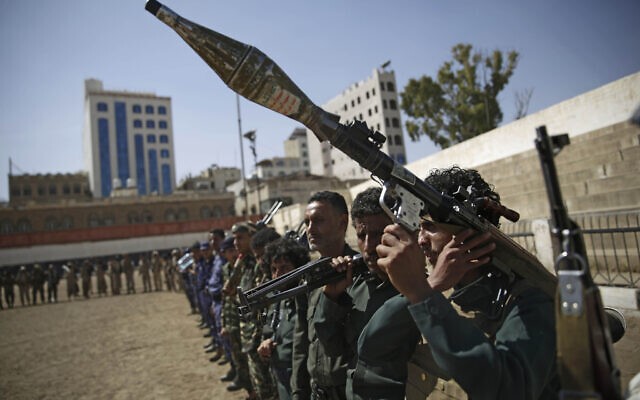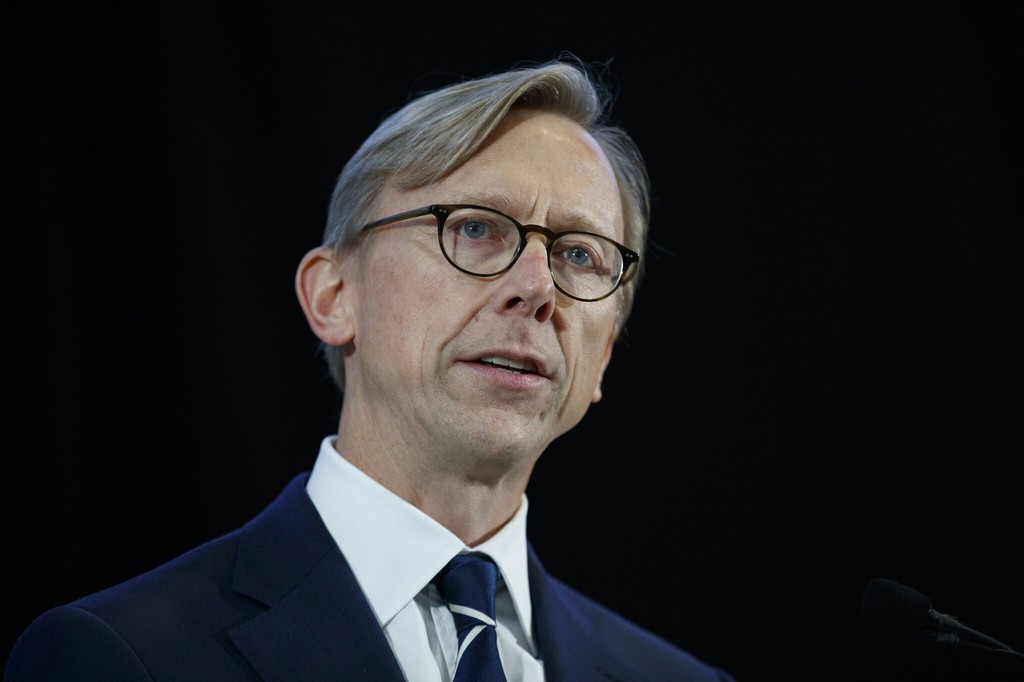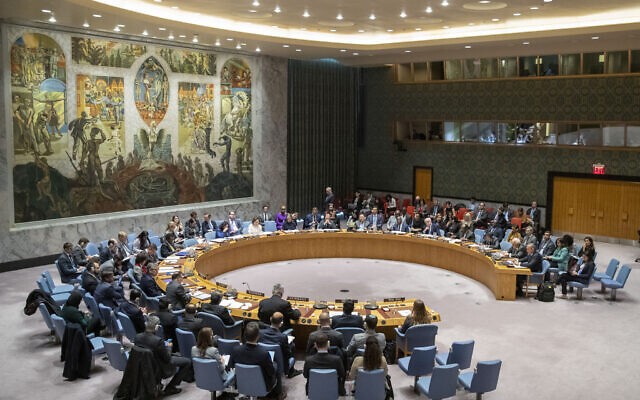Getting your Trinity Audio player ready...
The U.S. special representative for Iran on Sunday sought to rally Gulf allies as Washington tried to extend an arms embargo on Tehran, warning failure would "intensify" regional conflicts.
"I've spoken with leaders here in the Gulf and around the world -- no one believes that Iran should be able to freely buy and sell conventional weapons such as fighter jets... and various kinds of missiles," Brian Hook told journalists in an online briefing while on a visit to Qatar.
The United States has urged the UN Security Council to extend an arms embargo on Iran that expires in October.
The extension is opposed by veto-wielding Russia and China, which stand to gain major arms contracts from Iran.
"If the Security Council fails to extend the arms embargo by October 18, Iran will be able to freely buy and sell these weapons," Hook said.
"Imagine what the region will look like if this happens, conflicts in places like Syria and Yemen will certainly intensify."
3 View gallery


Houthi rebel fighters display their weapons during a gathering aimed at mobilizing more fighters for the Iranian-backed Houthi movement, in Sanaa, Yemen
(Photo: AP)
U.S. arch-foe Iran is a key player on the side of the Syrian government in the country's conflict and is aligned with Huthi rebels in Yemen fighting the government, supported by a coalition led by U.S. ally Saudi Arabia.
Washington has warned it could employ a disputed legal move to restore wide UN sanctions on Iran if the Security Council does not prolong a ban on conventional arms sales to the Islamic republic.
Iran is also at the heart of a dispute between Qatar and a Saudi-led quartet of regional countries that cut diplomatic, economic and travel ties with Doha in 2017.
Hook reiterated Washington's call for a resolution to the feud that saw Saudi Arabia, Egypt, the United Arab Emirates and Bahrain break with Qatar over accusations Doha was too close to Iran and backing radical Islamists. Qatar denies the allegations.
"The dispute has continued for too long and it ultimately harms our shared regional interests in stability prosperity and security," Hook said.
Kuwait has long led mediation efforts between Qatar and the quartet, but the country's ruler, Sheikh Sabah al-Ahmad Al-Sabah, traveled to the U.S. on Thursday for medical treatment.
"I know that Kuwait has also invested a lot of time in this I should also add that we very much hope for the improved health of the emir of Kuwait," Hook said.
The US envoy will visit Kuwait on the next leg of his trip, having already visited Tunisia, a current member of the Security Council.



